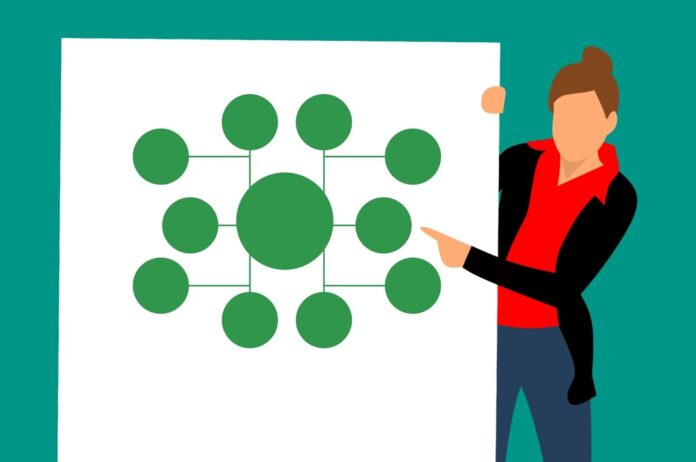Blockchain is a technology-based technique of monitoring transactions that may end up being revolutionary. Despite being in its early stages, blockchain is being used for a variety of commercial purposes.
The technology, according to experts, may be used for anything from data management to regulatory compliance. It might have a favourable effect on all facets of the economy.
Currently, blockchain is being fully explored by the Cryptocurrency industry. Not just the digital assets and their security keys, it is also helping popular Crypto exchanges like the crypto boom to ensure security and anonymity during asset trading.
Here we will exclusively look into how blockchain technology can help businesses streamline their functions better.
What Is Blockchain Technology?
A blockchain is a digital ledger that is sometimes described as a “chain” made up of distinct “blocks” of information.
A new “block” is formed and joined to the chain each time fresh data is uploaded to the network. To do this, all nodes must update their copies of the blockchain ledger to match one another.
The popularity of Bitcoin, Ethereum, and a few other cryptocurrencies has increased the use of blockchain technology.
But it also has promising applications in the legal industry, real estate transactions, the medical field, and any other industry that needs to approve and document a series of actions or transactions.
Benefits Of Using Blockchain Technology In Modern Business
Provided below is a list of positive changes blockchain can bring to businesses—
Decentralised Platform
A blockchain’s decentralised platform ensures that all parties involved can see each other’s identities, which means they are not able to hide or lie about who they are.
This means that the exchange can be seen as fair by all parties and that it won’t be possible for one party to cheat another out of money or information.
This means there are no hidden costs that could come later down the line when things go wrong, such as fraud or scams.
Enhanced Privacy And Security
Each transaction is encrypted and properly linked to the prior transaction using a hashing technique. Once written, the data cannot be changed in any way.
This is perfect for systems that depend on unchanging data, such as those that monitor residents’ ageing.
The network is thought to be more secure the bigger and more widely dispersed it is. In the European Union (EU), where the General Data Protection Regulation (GDPR) goes into force in May, data privacy is a particularly contentious topic.
Faster And More Optimised
Traditional paper-based processes are labour-intensive, prone to human error, and usually require third-party mediation. Automating these processes using blockchain can result in transactions being completed more swiftly and efficiently.
The blockchain may combine transaction and documentation data, eliminating the need for paper-based trade. Because there is no need to reconcile several ledgers, clearing and settlement may go much more rapidly.
Supply Chain Management
Blockchain uses digital tokens that are issued by each party in the supply chain to validate its movement to monitor the origin of an item.
The token follows in lockstep each time the object is transferred.
A series of transactions recorded on the blockchain mirrors the chain of custody that exists in the real world.
Rather than a piece of paper, a barcode, or a digital file, the token serves as a virtual “certificate of validity” that is considerably more difficult to steal, fake, or hack.
The ledger assigns accountability to the information’s owners while guaranteeing that each step is verified.
Automated Smart Contracts
Blockchain technology has been used in a variety of use cases, including supply chain, storage, and payments.
Smart contracts are the innovation that results from automation.
Smart contracts are software protocols that “execute” themselves and allow individuals to exchange money, assets, or anything else of value. The contract’s conditions are hard-coded into the software.
Both parties must abide by the contract’s conditions for smart contracts to take effect. Even though these contracts are ideal for automation, they can only be used with those particular blockchains.
Conclusion
Back-office chores may be cleared and settled using blockchain in their present form. However, corporate users will have to drastically reengineer legacy systems, which will cost a lot of money.
The idea of an independent, immutable ledger is rendered useless if one chain provider refuses to adopt it.
Despite its advantages, blockchain should be treated similarly to many other technologies that have been integrated into an IT landscape: as a system of records, it will require set-up, operational support, and reliable data.





